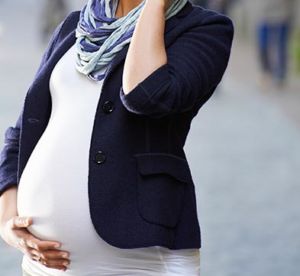
If your employer accommodates employees who have limitations similar to those caused by your pregnancy, your employer should accommodate you. This is the result of a recent U.S. Supreme Court decision, illustrated by another discrimination case from Kentucky that recently settled.
Lyndi J. Trischler switched from her duties on the beat as a police officer in Florence to desk-bound duties during her first pregnancy, according to the New York Times. Things changed by the time she was pregnant for the second time in 2014. The city’s new policy was that there would be no light duty work due to pregnancy. Trischler could stay on patrol until she could no longer work, but then she had to take time off.
Table of Contents
TogglePregnant Officers Told to Stop Working
 Taking unpaid time off normally meant no paycheck and no health insurance. This was important not only because of the costs of delivery but also because there was a high chance Trischler’s expected child would be born with a severe abnormality. Trischler kept up her usual duties for as long as she could, along with another officer, Samantha J. Riley, who became pregnant soon after her. Trischler said that her duties and the equipment she had to wear caused her a lot of pain every day during her pregnancy.
Taking unpaid time off normally meant no paycheck and no health insurance. This was important not only because of the costs of delivery but also because there was a high chance Trischler’s expected child would be born with a severe abnormality. Trischler kept up her usual duties for as long as she could, along with another officer, Samantha J. Riley, who became pregnant soon after her. Trischler said that her duties and the equipment she had to wear caused her a lot of pain every day during her pregnancy.
Riley and Trischler filed discrimination charges against Florence, claiming that its policy violated the Pregnancy Discrimination Act of 1978 and the Americans with Disabilities Act of 1990 (ADA). The federal Equal Employment Opportunity Commission (EEOC) investigated their complaints, found in their favor, and referred the case to the Justice Department for possible litigation.
In October, the Justice Department announced that Florence had agreed to accept a new policy allowing modified duty for pregnant employees, along with paying $135,000 in damages and attorneys’ fees to Trischler and Riley due to the discrimination complaint they filed against the town.
The number of women filing complaints of pregnancy discrimination to the EEOC has gone up from about 4,000 a year in the 1990s to more than 6,000 annually. Most of these claims are unsuccessful; even fewer involve women working in law enforcement, a physically demanding, dangerous, male-dominated profession.
Supreme Court Decides There Must Be Equal Treatment
This was the first pregnancy discrimination case the Justice Department had gotten involved with since the Supreme Court issued an important decision concerning the workplace rights of pregnant women in 2015, Young v. UPS see this. That case also involved a pregnant employee working in another male-dominated, physically demanding job. Peggy Young was a part-time driver for UPS when she became pregnant. She was not allowed to work in a light-duty position when she became unable to perform her usual duties. Young therefore stopped working, losing her income and health benefits.
UPS allowed light duty for those who couldn’t keep up with the physical demands of their jobs if they were injured on the job, lost their driver certifications from the Department of Transportation, or were considered disabled under the ADA. The Supreme Court ruled that UPS’s policy prohibiting light-duty work for pregnant employees violated the federal Pregnancy Discrimination Act. The court took the position that if an employer gave light duty to non-pregnant employees with physical restrictions, it had to do the same for similarly situated pregnant employees.
In Trischler’s case, the City of Florence allowed light duty for workers suffering job-related injuries but not for those with limitations caused by pregnancy. Although the City failed to accommodate them, the two mothers reported that they received positive treatment from their co-workers and superiors, even after they filed their complaint against the City. They said other officers offered to take the toughest cases during their pregnancies and donated their own unused vacation time so the women could continue to receive paychecks.
For her second pregnancy, management told Trischler that she could use her accumulated vacation and sick time but would then have to go on unpaid leave, which would have resulted in the loss of her health insurance. Thanks to the paid time off donated by her co-workers, short-term disability coverage, and an agreement by the City to continue her insurance if she paid the premiums, Trischler was able to get by. Her second child, a son, died shortly after birth.
Summing It Up
Because of the Young decision,
- A pregnant employee can show discrimination based on the fact that nonpregnant employees were allowed light-duty work but the pregnant employee was not, even though the limitations of the employees were similar.
- An employer could try to justify its actions by relying on legitimate, nondiscriminatory reasons for its denial of accommodations, but those reasons must be above and beyond any increased expense and the inconvenience the accommodations may cause.
- The plaintiff would then have to show sufficient evidence both that the employer’s policies impose a significant burden on pregnant workers, and that the employer’s given reasons aren’t strong enough to justify the burden on pregnant employees. This creates a genuine legal issue as to whether, by accommodating non-pregnant employees but not pregnant employees, illegal discrimination occurred.
If you’re pregnant and in need of a workplace accommodation that’s available to nonpregnant employees but not available to you, you may be dealing with illegal discrimination. Contact our office so we can talk about what’s going on, what accommodations you need, how the law may be applied, and how you can best protect your rights.





